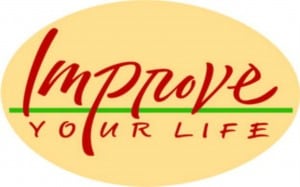 Back in February we did a blog warning the public to Beware of Debt Settlement Companies. At the time the U.S. Federal Trade Commission had effectively shut down debt settlement companies, but no action had been taken in Canada. Although there have been numerous consumer alerts issued about debt settlement companies by the Financial Consumer Agency of Canada (FCAC), many people are still falling victim to them. Consumers are taken in by false claims offering to settle your debts for pennies on the dollar quickly and easily. The reality is that when something seems too good to be true, it usually is. Debt settlement companies exist for only one reason – to take your money! They will not help you solve your debt problems. There is no instant or quick fix for serious debt issues.
Back in February we did a blog warning the public to Beware of Debt Settlement Companies. At the time the U.S. Federal Trade Commission had effectively shut down debt settlement companies, but no action had been taken in Canada. Although there have been numerous consumer alerts issued about debt settlement companies by the Financial Consumer Agency of Canada (FCAC), many people are still falling victim to them. Consumers are taken in by false claims offering to settle your debts for pennies on the dollar quickly and easily. The reality is that when something seems too good to be true, it usually is. Debt settlement companies exist for only one reason – to take your money! They will not help you solve your debt problems. There is no instant or quick fix for serious debt issues.
Finally this spring the Ontario Ministry of Consumer Services publicly declared it is moving ahead with tough legislative measures to protect consumers from these unscrupulous companies know as debt settlement companies, debt reduction companies, debt relief companies and debt negotiation companies. The Ontario Ministry of Consumer Services intends to introduce legislation that will:
- Ban companies from charging upfront fees for debt settlement services
- Limit the amount of fees consumers are charged
- Require clear, easy-to-understand contracts
- Establish a 10-day cooling-off period, providing consumers more time to consider their agreements
- Allow the licenses of non-compliant debt settlement companies to be revoked
The best advice that we can offer is beware! There are currently 60 debt settlement companies operating in Ontario just waiting to take advantage of your situation.
If you are experiencing serious debt problems, there is help available. Contact Ira Smith Trustee & Receiver Inc. We are licensed by the Government of Canada and subject to a stringent code of ethics. As trustees in bankruptcy we will evaluate your situation and help you to arrive at the best possible solution for your problems, whether that solution is a bankruptcy alternative like credit counselling, debt consolidation or a consumer proposal or bankruptcy. If ultimately consumer proposals or bankruptcy is the best option for you, you will have to use a trustee in bankruptcy. Contact us today and take your first step towards living a debt free life Starting Over, Starting Now.








